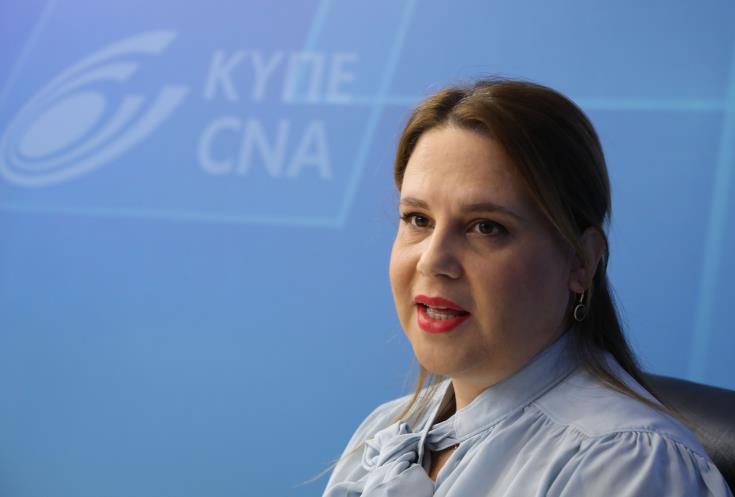He exceeded the limits to which the exercise of freedom of expression is subject, based on the Law, and infringed the rights of third parties through his works of art, in which he presented, among others, Christ naked, with a football team scarf and on motorcycle, says in a statement the Commissioner of Administration and Protection of Human Rights Maria Stylianou - Lottidi.
Ms. Stylianou-Lottidi says that she submits her position as a National Independent Human Rights Authority in order, as she states, to consider the protection of all human rights, including the "right" of art and expression. to be kept away from the threat of any personal persecution.
"In this case of the person, as a teacher and an artist at the same time, it seems that the way of exercising his freedom of expression through art, using the face of Christ undoubtedly shocked, undoubtedly provoked and annoyed a portion of the population, but not stopped "he adds.
He goes on to say that he exceeded the legitimate limits of accepting any challenge and touched the divine, at the same time touching on the religious feelings of the faithful and thus infringing on the rights of third parties associated with religious freedom. "In other words, it exceeded the limits to which the exercise of freedom of expression is subject, based on the Law, and violated the rights of third parties," he says.
The Commissioner for Administration and Protection of Human Rights cites as an example the case "Otto-Preminger-Institute v. Austria ”where, according to the ECtHR, respect for the religious feelings of the faithful is a legitimate aim which may restrict the exercise of freedom of expression and is permissible in a democratic society where public morals or social ethics make it necessary.
"Undoubtedly, with the boundless art of the professor, the rights of third parties as expressed through their religious feelings, have been affected, as at the same time the freedom of expression has been affected by its abuse," adds Ms. Stylianou-Lottidi. He also notes that "the more we violate the limits in the exercise of our rights, the more we create opportunities for the state to intervene and reduce them" while noting that "freedom does not only want 'virtue and courage', it presupposes respect for the rights of all our fellow human beings."
In her statement, the Commissioner for Administration and Protection of Human Rights says that the actions and statements of the Art Professor give rise to a conflict between two great goods and fundamental rights, freedom of expression and religious freedom, as interpreted by jurisprudence and and are unquestionably linked to public / good morals or otherwise social ethics in a given place and time.
He then makes extensive reference to the relevant articles of the Constitution of the Republic of Cyprus on freedom of expression and religious freedom, as well as to the relevant articles of the European Convention on Human Rights (ECHR), while noting relevant examples from case law.
Indicatively, it refers to the decision “Otto-Preminger-Institute v. Austria ”where the Court dealt with the right to freedom of expression and its association with religious freedom, while both the national court and the ECtHR ruled that the precautionary intervention of the state for the seizure and confiscation of a film involving erotic and other clerical reports , God, Jesus, The Virgin.
Then, he says, the ECtHR, after being convinced that there was a violation of freedom of expression with the confiscation and confiscation of the film, wondered if the intervention was provided by law, if the offense of insulting religion was provided for in national law, and then examined whether intervention had a 'legitimate purpose'. Counting all the above elements, he considered that the legal purpose was to respect the religious feelings of the faithful, which is ensured in Article 9 of the ECHR (religious freedom), he adds.
Finally, wondering whether state intervention with the seizure was necessary in a democratic society, he says that the Court recalled its firm position as formulated in the case of Muller v. Switzerland, 1988, that the concept of morality varies in Europe from country to country, concluding that the seizure and obstruction of the screening of the film, which violated religious freedom, did not violate the right to expression as protected by Article 10 of the Convention.
Source: KYPE / Famagusta.News
